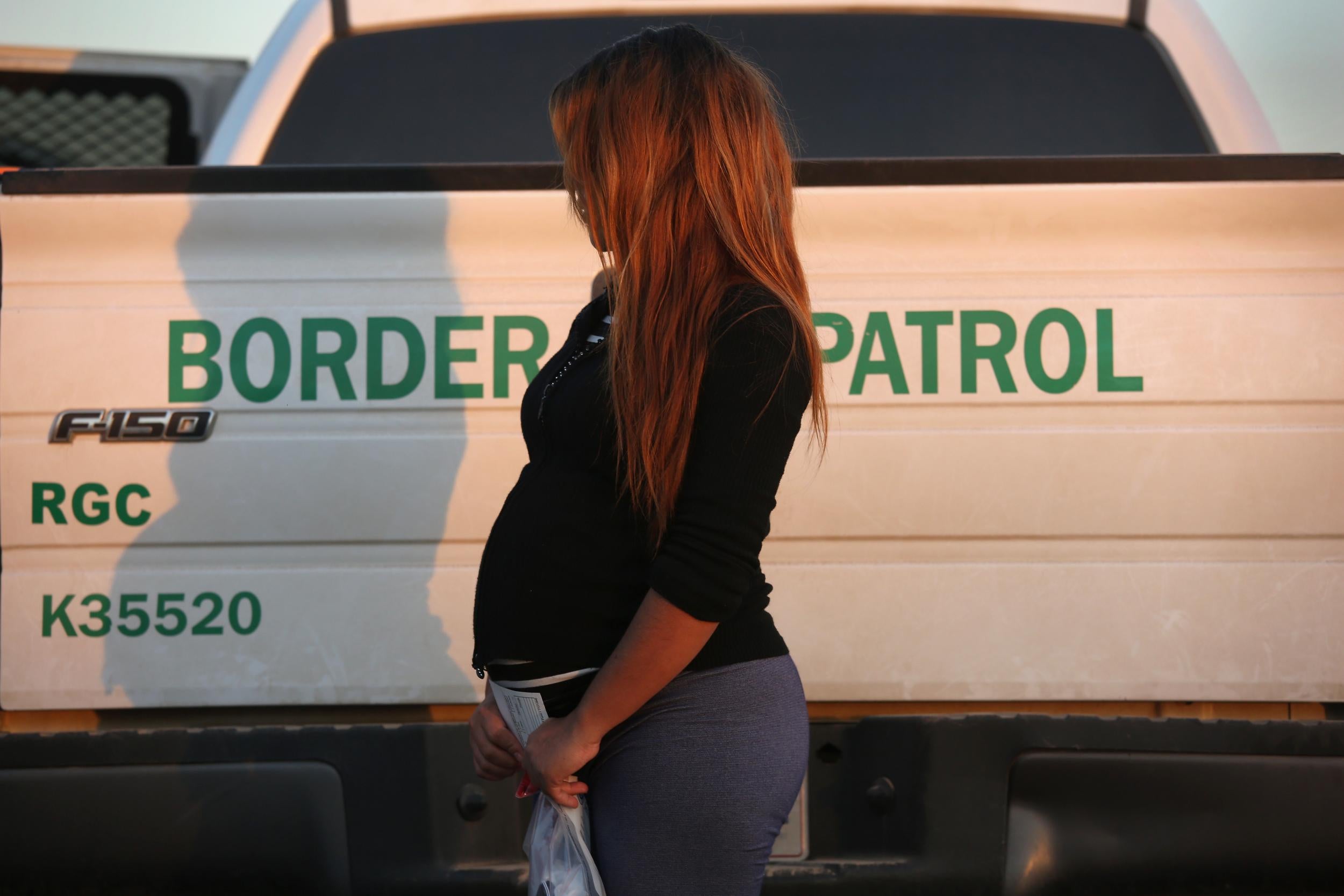US Border Patrol sets up surprise immigration checkpoint in Maine
Human rights advocates tell The Independent they have not seen this many temporary checkpoints popping up since the days of the George W Bush administration

Your support helps us to tell the story
From reproductive rights to climate change to Big Tech, The Independent is on the ground when the story is developing. Whether it's investigating the financials of Elon Musk's pro-Trump PAC or producing our latest documentary, 'The A Word', which shines a light on the American women fighting for reproductive rights, we know how important it is to parse out the facts from the messaging.
At such a critical moment in US history, we need reporters on the ground. Your donation allows us to keep sending journalists to speak to both sides of the story.
The Independent is trusted by Americans across the entire political spectrum. And unlike many other quality news outlets, we choose not to lock Americans out of our reporting and analysis with paywalls. We believe quality journalism should be available to everyone, paid for by those who can afford it.
Your support makes all the difference.US Border Patrol set up a temporary inland checkpoint on a Maine interstate, a move civil rights advocates say raises concerning questions about constitutional protections under the Trump administration.
The inland checkpoint was first reported by the Bangor Daily News, which sent reporters to drive through the Interstate 95 stop and ask a few questions of the Border Patrol officers there. Drivers arriving at the checkpoint, which was there for 11 hours, were being asked citizenship questions before the agents were allowing them to proceed.
“If you want to continue down the road, then yes ma’am. We need to know what citizen — what country you’re a citizen of,” one agent told the reporters who made the trip.
The agent told the reporters, when asked what would happen if they declined to answer, that a vehicle would only be allowed to proceed if the officer judged that they are likely US citizens.
While these sorts of screening checkpoints are routine along the border and have been happening for decades, Chris Rickerd, a policy council in the National Political Advocacy Department of the American Civil Liberties Union, told The Independent that the rate at which the checkpoints have been used recently has not been seen since in years.
“They have come back in a way that we haven’t seen since the Bush years at the northern border,” Mr Rickerd said, referring to President George W Bush who occupied the White House between 2001 and 2009. “The Obama administration, it appears, was more selective in these transportation checks. They required some action intelligence”
“These seem to be random, dragnet sweeps,” Mr Rickerd said, referring to the checkpoints along the US-Canada border that a number of rights groups have documented as popping up more and more during the presidency of Donald Trump:
The extent of the change between the number of temporary Border Patrol checkpoints during the Trump administration and precious administrations is difficult to pin down, as the agency does not often provide public figures clarifying overall use.
The American Civil Liberties Union (ACLU) and its affiliates have lawsuits pending to gain access to that data, and a Border Patrol spokesperson said that the “timing, locations and frequency of tactical immigration checkpoints are law enforcement sensitive, and obviously due to operational security, checkpoint details are not something that we would publicly disclose”.
“Immigration checkpoints are a critical tool for the enforcement of our nation’s immigration laws and are part of our defence-in-depth strategy to accomplish the border security mission,” the spokesperson continued. “Operations of this type are within the jurisdiction of the Border Patrol and performed in direct support of immediate border enforcement efforts and as a means of preventing smuggling organisations from exploiting existing transportation hubs to travel to the interior of the United States.”
Critics of Border Patrol checkpoints say that the checkpoints are a waste of manpower and money, and that they introduce the potential for serious civil liberties abuses.
A report from the Government Accountability Office published last year found that the checkpoints, which can be set up anywhere within 100 air miles of the US border — whether maritime or land-based — found that a disproportionately small number of undocumented immigrants are actually detained at the checkpoints compared to the number detained at non-checkpoints, and that the drug seizures are also comparatively low.
Emma Bond, the staff attorney for the ACLU in Maine, said that the behaviour of the Border Patrol officers in Maine — who appeared to assert their individual discretion to keep motorists, even though certain protections do exist and American citizens are no required by law to carry proof of citizenship while in the US — underscore that the checkpoints present an opportunity for the violation of constitutional protections, especially the Fourth Amendment’s protection from unusual search and seizure.
"The suspicionless searches in this immigration checkpoint pose the all the risks of biased and subjective enforcement that the Fourth Amendment is designed to prevent," Ms Bond said. "In such cases, there is always concern about targeting racial minorities and other groups".
Join our commenting forum
Join thought-provoking conversations, follow other Independent readers and see their replies
Comments